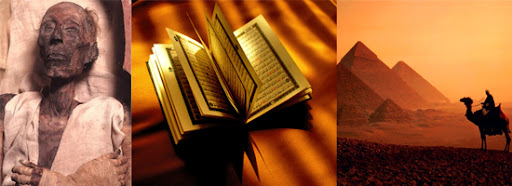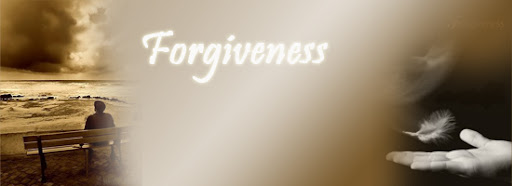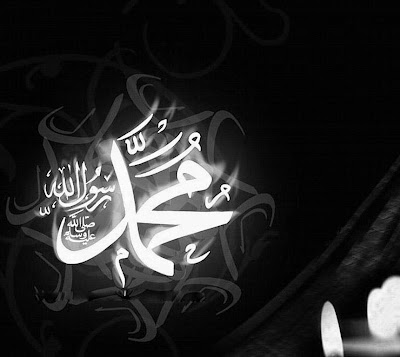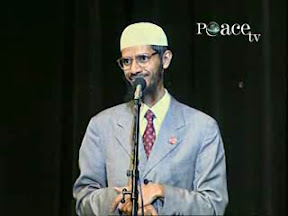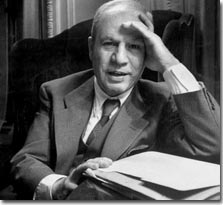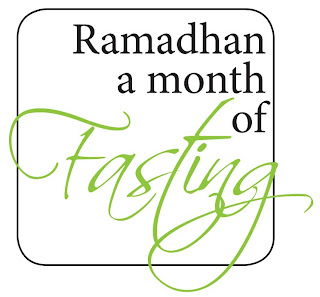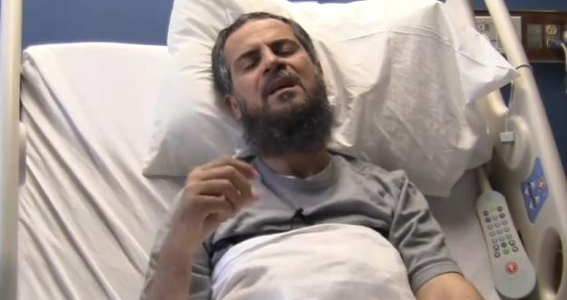We, as his followers of prophet Muhammad (pbuh), have the easy part which is to seek and adopt his gentle qualities and high moral standards into daily practice - The Prophet's Mosque in Madinah
God has always chosen prophets with the best of characters, morals and spirits.
Since God is All-Knowing, All-Wise, and has ordained man’s destiny before their birth, it is feasible to think that He has already chosen His Prophets before even their entrance to the world.
Prophet Muhammad (pbuh) was not an exception. God bestowed on him the best of characters, one of which was his exceptional tolerance which is manifested in his life and teachings:
"And verily, you (O Muhammad) are on an exalted (standard of) character" (Al-Qalam 68: 4)
We will examine some examples of his tolerance at the advent of Islam and during its expansion process. In the next article, we will examine his treatment of non-Muslims.
In Makkah
During the first thirteen years of his life in Makkah, he and his followers faced much persecution. Muslims were not ordered by God to fight back due to the fact that they had no military strength yet due to the small following which gradually increased. It was only in Madinah when his following and military power rapidly grew that fighting to protect themselves and the new religion was allowed.
When the Prophet’s opponents greatly increased their persecution, his companions asked him to curse them. At this the Prophet replied:
"I have not been sent to lay a curse upon men but to be a blessing to them." (Muslim)
His opponents continued to treat him and his companions unjustly and cruelly, but he always prayed for them.
He once decided to personally visit the village of Ta'if, to the east of Makkah, to invite its inhabitants to Islam. The people rejected him, stoned him, ejected him, and made him to bleed. Angel Gabriel came to him and said:
"Allah has heard what your people say to you and how they reject you. He has ordered the angels of the mountains to obey whatever you tell them to do." The angel of the mountains called him, greeted him and said, "Send me to do what you wish. If you wish, I will crush them between the two mountains of Makkah."
The Prophet said:
"Rather, I hope that Allah will bring forth from their loins those who will worship Allah alone and not associate anything with Him." (Al-Bukhari)
In the early Makkan period when the enemies of the new religion far exceeded the Prophet’s companions in number, it often happened that when the Prophet would stand to pray, his foes would come near him and whistle and clap in order to disturb him, but the Prophet would not even once show his anger at such acts. He always opted for the policy of tolerance and avoidance of confrontation.
In one instance when the Prophet was praying at the Ka’bah while his enemies were watching his every move and action, one of his adversaries put on his back the intestine of a slaughtered camel during his prostration. The Prophet did not react and stayed in that position. His daughter, Fatimah, rushed to take the filth off his back and cleaned him up.
In Madinah
Later, when Prophet Muhammad (pbuh) and many of his companions migrated to Madinah, again his great character in dealing with his companions and enemies was further manifested.
In Madinah, the Muslims were in the process of establishing the new Islamic state. Yet, their enemies in Makkah did not spare much time to wage war against them and pursue them even in Madinah.
In the battle of Uhud, when his Makkan enemies attacked the Muslims, Prophet Muhammad (pbuh) suffered head injury and his front teeth got smashed. When the blood started to seep from his head, he swabbed it saying:
"If a drop of my blood fell on the earth, those infidels will be destroyed by Allah." Umar told him, O Messenger of Allah, Curse them! The prophet replied: "I wasn't sent (by Allah) to curse. I was sent as a mercy." Then he said: "O Allah, Guide my people!" (Authenticated by Al-Albani)
God confirms his blessed character by saying:
"And We have not sent you forth but as a mercy to mankind." [Quran 21:107]
The Prophet once said:
"A true believer is one with whom others feel secure." (Al-Bukhari)
He manifested these words with action and was not fast to revenge or rebuke a wrong doer.
A Bedouin once entered the mosque and started to urinate in it. Mosques at that time had no walls and carpeted floors and the ceilings were palm leaves held up by palm stems. The people ran to (prevent and restrain) him. The Prophet said:
"Do not interrupt his urination (i.e. let him finish). Then the Prophet asked for a pitcher of water to be poured over the place of urine." (Al-Bukhari)
One of the prophet Jesus’(pbuh) famous saying is: “Love your neighbor like yourself.” Prophet Muhammad (pbuh) complemented this by saying:
"By God, he is not a believer, by God, he is not a believer, by God, he is not a believer, with whom his neighbors are not secure." (Al-Bukhari)
This includes tolerance for actions they may do that is not pleasing to one.
It is reported that one of the Prophet’s neighbors was a Jew who hated the Prophet. Each day he would throw trash on his way. The prophet never rebuked him. One day, the Jew did not show up. The Prophet asked about him, and was told that he was sick. So, he went to visit him and inquire about his health with kindness. Upon seeing this, the Jew embraced Islam.
The enmity of his worst enemy toward his most beloved was also met with awesome goodness.
Hamza was among the Prophet’s most beloved uncles. During one of the battles, Hend, the wife of Abu Sufyan, the arch enemy of the Prophet, had ordered her slave to find Hamza and pierce him with his arrow. Upon seeing him dead, she rushed to his body and cut out his liver and started chewing on it while filled with rage. Upon the conquest of Makkah, the Prophet did not seek revenge on her and accepted her and her husband as new converts and gave them full protection.
Anas ibn Malik, who served the Prophet for ten years, said that the Prophet never rebuked him:
"When I did something, he never questioned my manner of doing it; and when I did not do something, he never questioned my failure to do it. He was the most good-natured of all men." (Al-Bukhari)
Such manners of tolerance gained him the respect even of his enemies, and his followers stood by him through all kinds of hardship and misfortune.
Despite all the concessions Prophet Muhammad (pbuh) made with the Makkans, the later violated the same treaty they signed earlier.
Although his worse enemies were the Makkan Arabs at the beginning, but in Madinah, the Jews did not spare any effort to conspire against him, even after treaties were signed with them. However, he tried to be as fair with them as possible and only waged war against them when they broke treaties which caused much loss of life of Muslims.
Once, when the Prophet was sitting at a place in Madinah, along with his companions, a funeral procession passed by. On seeing this, the Prophet stood up. One of his companions remarked that the funeral was that of a Jew. The Prophet replied:
"Was he not a human being?" (Muslim)
Since Prophet Muhammad (pbuh) wished to avoid war at all costs, he strove to bring about a peace agreement between him and the Makkans. After great efforts on his part, the non-Muslims agreed to a ten-year peace treaty, which was drafted and signed at Al-Hudaybiyyah, a place outside Makkah.
During this important meeting, the Makkans insisted on a number of extremely provocative acts. For instance, the agreement mentioned the Prophet’s name as “Muhammad (pbuh) the Messenger of Allah.” They insisted to replace by “son of Abdullah.” The Prophet accepted peacefully and deleted the appellation. Similarly, they made the condition that if they could lay their hands on any Muslim they would make him a hostage, but if the Muslims succeeded in detaining any non-Muslim, they would have to set him free. The Prophet even relented on this point for establishment of peace in the region. He was clearly setting examples of fairness and tolerance while exposed to injustice and intolerance.
Despite all the concessions Prophet Muhammad (pbuh) made with the Makkans, the later violated the same treaty they signed earlier. It was then that the Prophet finally marched with his huge army to Makkah and without any resistance conquered the city which was once the abode of his worse enemies.
As mentioned earlier, the Prophet and his followers suffered a great deal during their thirteen years of living in Makkah and after their migration to Madinah. His own tribesmen and even family members continue to oppose him in not only in Makkah but rose to fight him in Madinah for over 20 years. They did not spear any effort to inflict the worse humanly possible hardship on them. In Makkah, it included, torture, sanctions, taking their lives’ belonging, separating family members and slaughtering them wherever they could find them. With God’s help and his and his companions’ steadfastness in Madinah and upholding the message of Islam, they finally conquered Makkah. Its leaders came to him fearing that he would kill them as all conquerors do. But instead, he said:
"Go! You are all free!" (Authenticated by Al-Albani)
Prophet Muhammad's (pbuh) mercy and tolerance did not exclude his worse enemies. Such tolerance awed his enemies who were now the newly converted Muslims. The end result is a clear history that is registered to this day. Message of Islam spread across the world, to include on fifth of the global population.
Prophet Muhammad's (pbuh) character and qualities are not only for the Muslims to follow, but the sincere seekers who learn about him.
These are only a few among many examples of the Prophet’s tolerance and noble character. Aisha, the wife of the Prophet was asked regarding the character of the Prophet (peace be upon him). She said very simply, that:
"The character of the Prophet was the Quran." (Muslim)
Clearly, the Prophet molded his own life in accordance with the ideal pattern of life that he presented to others in the form of the Quran revealed to him by God. He never beat a servant, or a woman, or anyone else. He did, of course, fight for what was right. When he had to choose between two alternatives, he would take the easier course, provided it involved no sin. No one was more careful to avoid sin than he. He never sought revenge on his own sake for any wrong done to him personally. He was tolerant. Only if God’s commandments had been broken would he meet out retribution for the sake of God. It was such conduct which gained the Prophet universal respect.
Scholars further explain about the Quran being his character:
“What this means is that he followed its etiquette and adopted its attitude. Whatever was praised in the Quran, he was pleased with, and whatever was condemned in the Quran he hated. It says in one report that Aisha said: His attitude was the Quran, whatever it was pleased with he was pleased with and whatever it hated he hated.” (Ibn rajab in Jaami’ al-‘Uloom wa’l-Hukam (1/148))
One may say, since he was the last Prophet and messenger to mankind, no other can ever be quite like him. This is true because none shall ever have to shoulder a fraction of the responsibilities he had to bear. However, we, as his followers, have the easy part which is to seek and adopt his gentle qualities and high moral standards into daily practice; for the Prophet's life was divinely chosen to function as a practical manual of how one should better himself.
Prophet Muhammad's (pbuh) character and qualities are not only for the Muslims to follow, but the sincere seekers who learn about him, praise his noble character and wish to follow it.
Goethe, a famous German writer, artist, and politician of the 1800s, marveled over the achievements and status of the Prophet Muhammad (peace be upon him) saying:
"We Europeans with all our concepts and ideas have not yet attained that which Muhammad (pbuh) attained, and no one will ever surpass him."
"I searched in history for the loftiest example for man to follow, and I found it in the Prophet Muhammad. Thus the truth must prevail and become supreme, because Muhammad succeeded in subjugating the whole world by means of the message of Divine Oneness."
Credit:
By Raya Shokatfard (Inspired by the Prophet's Character)
Freelance Writer - USA
Read more about famous Non-Muslims Quotes about Prophet Muhammad (pbuh) -
Click here
--
Related posts:









